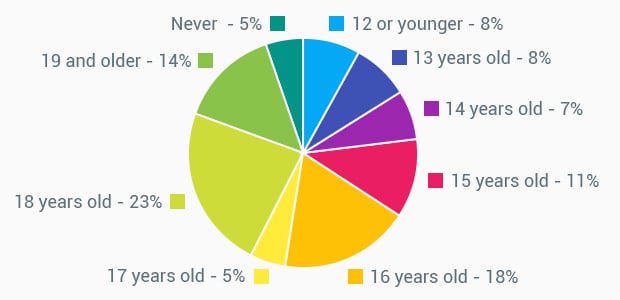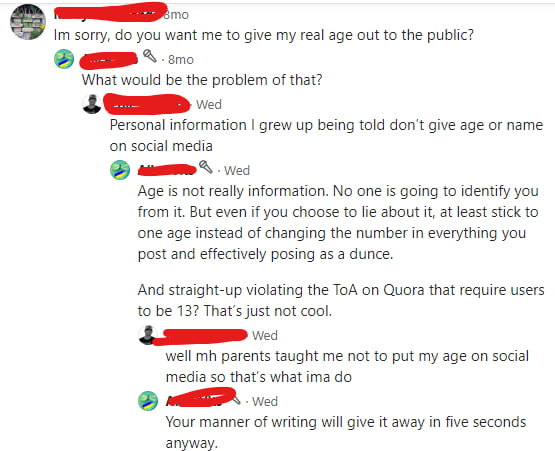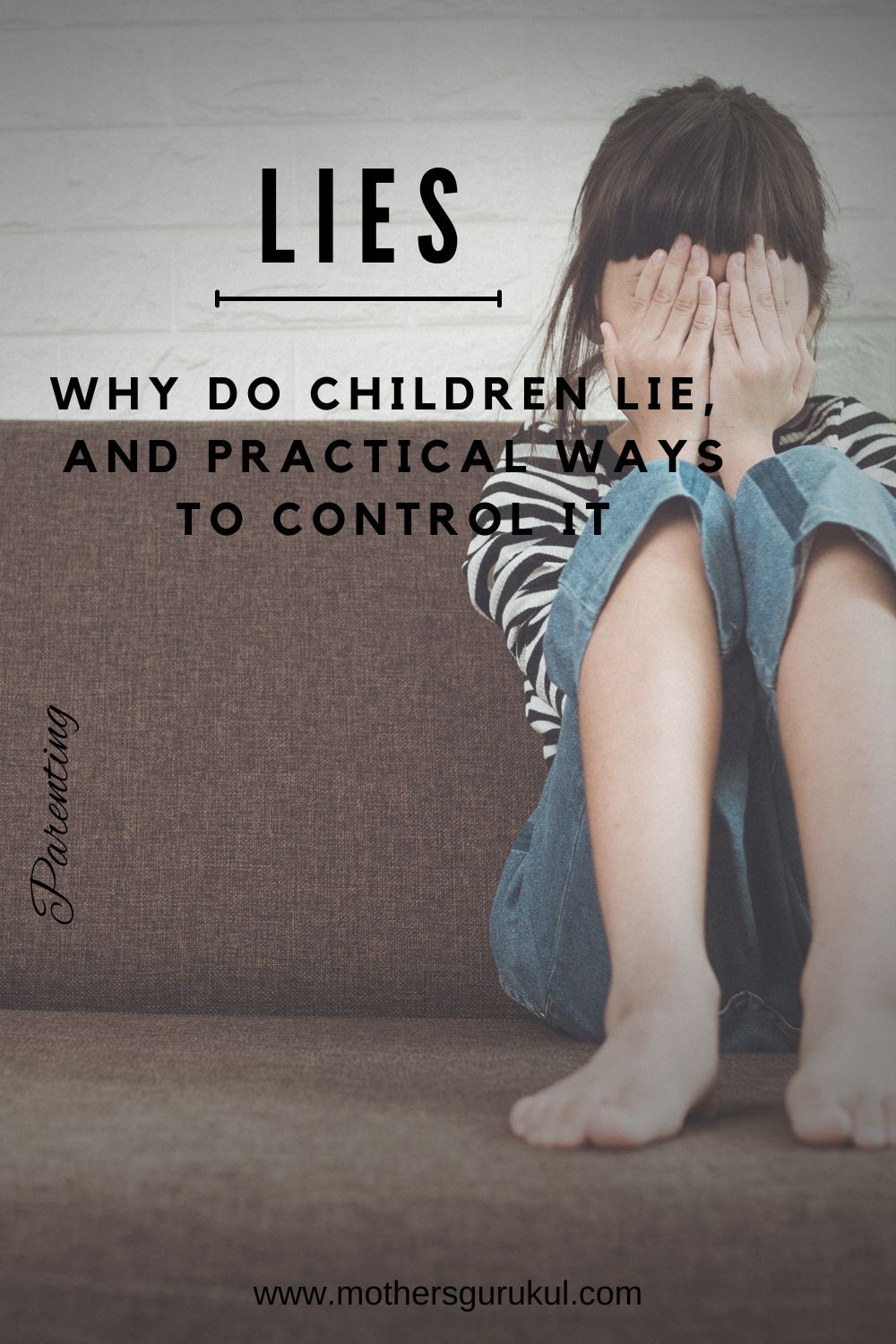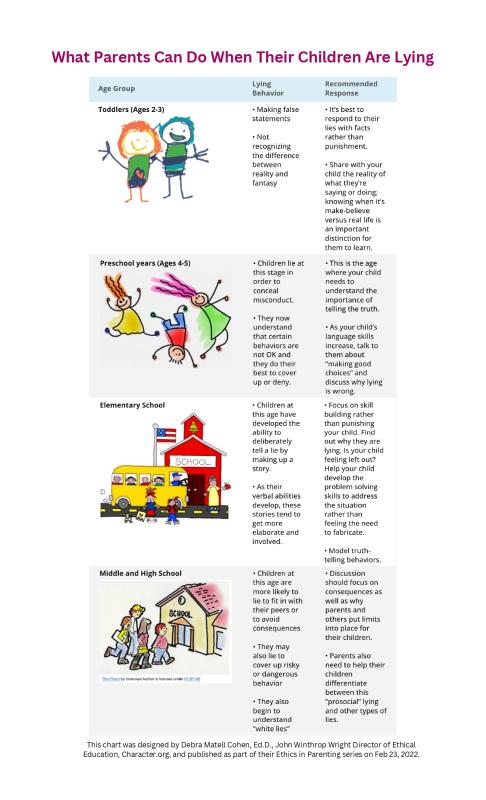What If A Minor Lies About Their Age Online

Imagine a world where the lines between childhood and adulthood blur, not through experience, but with a simple tap on a screen. A 13-year-old, eager to explore the vast expanse of the internet, alters their birthdate to appear 18. Suddenly, a world of social media, dating apps, and online communities, previously out of reach, swings open. This seemingly innocuous act, a digital fib, can set in motion a chain of consequences that ripple through a minor's life and the lives of those they interact with.
This article explores the complex and often murky legal and ethical landscape surrounding minors who misrepresent their age online. It delves into the potential ramifications, from legal repercussions and privacy violations to the emotional and social impact on both the minor and those who believe their fabricated identity.
The Digital Facade: Why Minors Lie About Their Age
The reasons behind a minor's decision to lie about their age online are varied and often deeply personal. The allure of accessing age-restricted content, such as certain social media platforms or online games, is a powerful motivator. Peer pressure and the desire to fit in with older friends can also play a significant role.
Another key factor is the perceived anonymity that the internet offers. Minors might believe that altering their age is a harmless act, with no real-world consequences, hidden behind a screen name and a fabricated profile.
However, the reality is far more complex. According to a 2023 report by the Pew Research Center, a significant percentage of teenagers have admitted to misrepresenting themselves online, often to gain access to restricted content or services. This highlights the prevalence of the issue and the need for greater awareness and education.
Legal Ramifications: A Tangled Web
The legal consequences for a minor lying about their age online depend heavily on the specific context and the laws of the jurisdiction. In many cases, simply misrepresenting one's age to access a social media platform might not result in criminal charges. However, if the misrepresentation is used to engage in illegal activities, such as online fraud or purchasing age-restricted products like alcohol or tobacco, the legal ramifications can be severe.
The Children's Online Privacy Protection Act (COPPA) in the United States, for example, places restrictions on the collection and use of personal information of children under 13. Websites and online services that knowingly collect information from children under 13 must obtain verifiable parental consent. If a minor lies about their age to circumvent COPPA regulations, the website or service may face legal penalties.
Furthermore, minors who misrepresent their age and engage in harmful online interactions, such as cyberbullying or online harassment, may face civil or criminal charges, even if they initially misrepresented their age. The anonymity afforded by a false persona does not shield them from accountability for their actions.
Privacy Perils: Exposing Vulnerabilities
Lying about one's age online can expose minors to significant privacy risks. By creating a false profile, they may inadvertently share personal information with individuals or entities that have malicious intent. This information can be used for identity theft, phishing scams, or even physical harm.
Dating apps, in particular, present a significant risk. When a minor creates a profile falsely claiming to be an adult, they may be targeted by predators posing as adults. These interactions can have devastating emotional and psychological consequences. It's crucial to note the numerous FBI warnings regarding online predators targeting children on dating apps and social media platforms.
Even seemingly harmless online activities can pose risks. Sharing personal information on social media, even with a limited circle of "friends," can expose minors to unwanted attention or cyberbullying. The permanence of online data means that information shared in the past can resurface later in life, potentially impacting future opportunities.
Emotional and Social Impact: A Delicate Balance
The emotional and social impact of lying about one's age online can be profound and multifaceted. While some minors may feel a sense of empowerment or excitement from accessing restricted content, others may experience feelings of guilt, anxiety, or shame.
The need to maintain a false identity can be stressful and isolating. Minors may feel pressure to conform to the expectations of their fabricated persona, leading to a disconnect between their online and offline lives. This can strain relationships with family and friends and hinder their ability to develop authentic social connections.
Furthermore, the potential for exposure and the fear of being caught can create a constant state of anxiety. The consequences of being discovered – such as being banned from a platform or facing legal repercussions – can be devastating, particularly for adolescents who are already navigating the challenges of identity formation.
The Perspective of Platforms: Policing the Digital Frontier
Social media platforms and online service providers are increasingly aware of the issue of minors misrepresenting their age and are taking steps to address it. Many platforms employ age verification methods, such as requiring users to provide a copy of their government-issued ID or using algorithms to detect suspicious activity. However, these methods are not foolproof, and minors can often find ways to circumvent them.
Companies like Meta (Facebook and Instagram) and TikTok have implemented stricter age verification policies and are investing in artificial intelligence to identify and remove fake accounts. They also provide resources and educational materials to help parents and caregivers talk to their children about online safety.
Despite these efforts, policing the digital frontier remains a significant challenge. The sheer volume of online content and the constant evolution of technology make it difficult to effectively prevent minors from misrepresenting their age.
Parental Guidance and Education: A Proactive Approach
Open communication between parents and children is crucial in preventing minors from lying about their age online. Parents should create a safe space for their children to discuss their online activities and concerns without fear of judgment. Educating children about the risks of online deception, including the legal, privacy, and emotional consequences, is essential.
Parents should also be aware of the tools and resources available to help them monitor their children's online activity and set appropriate boundaries. Parental control software can be used to restrict access to certain websites and apps and to monitor online communication.
Ultimately, a proactive approach that combines education, communication, and responsible technology use is the most effective way to protect minors from the potential harms of lying about their age online.
A Call for Collective Responsibility: Building a Safer Digital World
Addressing the issue of minors lying about their age online requires a collective effort from parents, educators, online platforms, and policymakers. By working together, we can create a safer and more responsible digital world for young people.
The digital landscape is constantly evolving, and it is crucial to stay informed about the latest risks and challenges. By fostering open communication, promoting responsible technology use, and advocating for effective policies, we can empower minors to make informed decisions and protect themselves from harm.
Perhaps the key lies in understanding the underlying motivations. If we can address the reasons why minors feel compelled to misrepresent themselves in the first place, we can begin to build a digital world that is more inclusive, supportive, and age-appropriate for everyone.


















